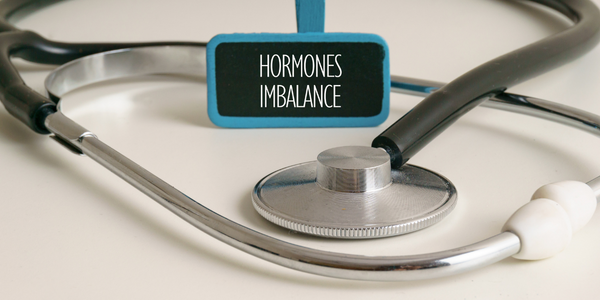Hormones are chemicals in the body that guide the tissues and organs on what to do, and are responsible for most of the primary processes in the body, such as digestion and respiration. Hormone imbalance is a condition whereby inadequate or excessive levels of a specific hormone, say testosterone or estrogen, and impact how the body functions. To better understand hormonal imbalance, see it as a coffee recipe. If you apply too much or too little of one ingredient, the overall quality of your coffee will be affected.
While hormonal fluctuations all have their own specific symptoms, some of the most common symptoms of hormonal issues in general include fatigue, depression, gaining excessive weight, changes in libido, increased sweating and mood changes.
Like the variety in symptoms, several factors can lead to hormonal imbalance, and while age and medications are among the most common, there are some that may be a result of simple lifestyle choices. In fact, some lifestyle mistakes can lead to hormonal imbalances, even before age has a chance to be a contributing factor. Here are four lifestyle mistakes that can affect your hormone levels.
Inconsistent Sleep
Many people are addicted to quick naps during the day, especially as we age, the idea of a little siesta during the day seems harmless. Even though it might be helping you recharge and gain momentum, in the long run, these short naps negatively affect your hormones. The main reason for this effect is that hormone and neurotransmitter regulation happen during deep sleep. By avoiding or limiting the body to this restorative sleep, regulation and recovery from the day can’t occur as needed.
Ultimately the consequence of poor sleeping patterns falls beyond the need or lack of naps during the day but rather in the initial lack of nighttime sleep. Additional benefits of good sleep include detoxification of the liver and relaxation of the mind and balance of the metabolic processes. Failure to have a good rest results in hormonal imbalance, which even at younger ages can have severe consequences such as poor menstrual cycles and fertility complications. As we age, weight gain, a decrease in cognitive abilities, and overall poor health can all be a result of poor sleep. Therefore, ensure you have at least six to eight hours of uninterrupted sleep at night.
Drug and Substance Abuse Can Lead to Hormonal Imbalance

Inconsistent Eating Times
While we all know that what you eat is important for optimal health, it is vital to have a fixed meal routine for better hormone balance. Inconsistent feeding tempers with the production of hormones and enzymes such as leptin and ghrelin. As a result, you might experience gut issues such as bloating and irritable bowel syndrome. However, as much as you should watch on your eating intervals, following a healthy diet and consuming proper foods is equally important. When it comes to the quality of food, some foods such as junk foods, overly processed foods, gluten, and excessive white sugar intake can lead to inflammation, ultimately affecting your hormone levels. Food is a significant determinant to your hormonal health. Therefore, having a consistent eating schedule and monitoring the quality of foods you consume can help to avoid hormonal issues.
For tips on Creating the Ultimate Anti-Aging “Diet”, click here.
Caffeine Addiction
Many people are self-proclaimed “caffeine addicts.” Those who insist they need a cup of coffee or tea first thing in the morning, throughout the day or even before going to bed. Even though caffeine is known for boosting energy levels, taking it before any other meal is not recommendable. It affects your metabolism and might lead to several hormonal disorders. Caffeine infiltrates your brain and triggers blood pressure which in turn triggers the production of stress hormones. Insulin and blood sugar levels are disrupted due to these stress hormones. You are able to catch a good sleep at night due to a drop in your cortisol levels. However, when you are stressed or anxious, your cortisol levels will keep escalating hence difficulties catching sleep. Therefore, for your hormonal health, avoid taking caffeine on an empty stomach or in the evening as you prepare for bed.
For a complete look at Caffeine and Your Hormones, click here.
Hormonal imbalance, though frustrating, is curable in many cases, however avoiding poor choices which can contribute to the struggle with hormonal imbalance issues is best, especially in later years. Avoiding such lifestyle mistakes and addictions will improve your internal health and combat already fluctuating hormone concerns as oppose to adding to the problem. However, if even after making these lifestyles changes you feel hormones may be the culprit to your symptoms, be sure to seek medical attention for proper diagnosis and treatment.





